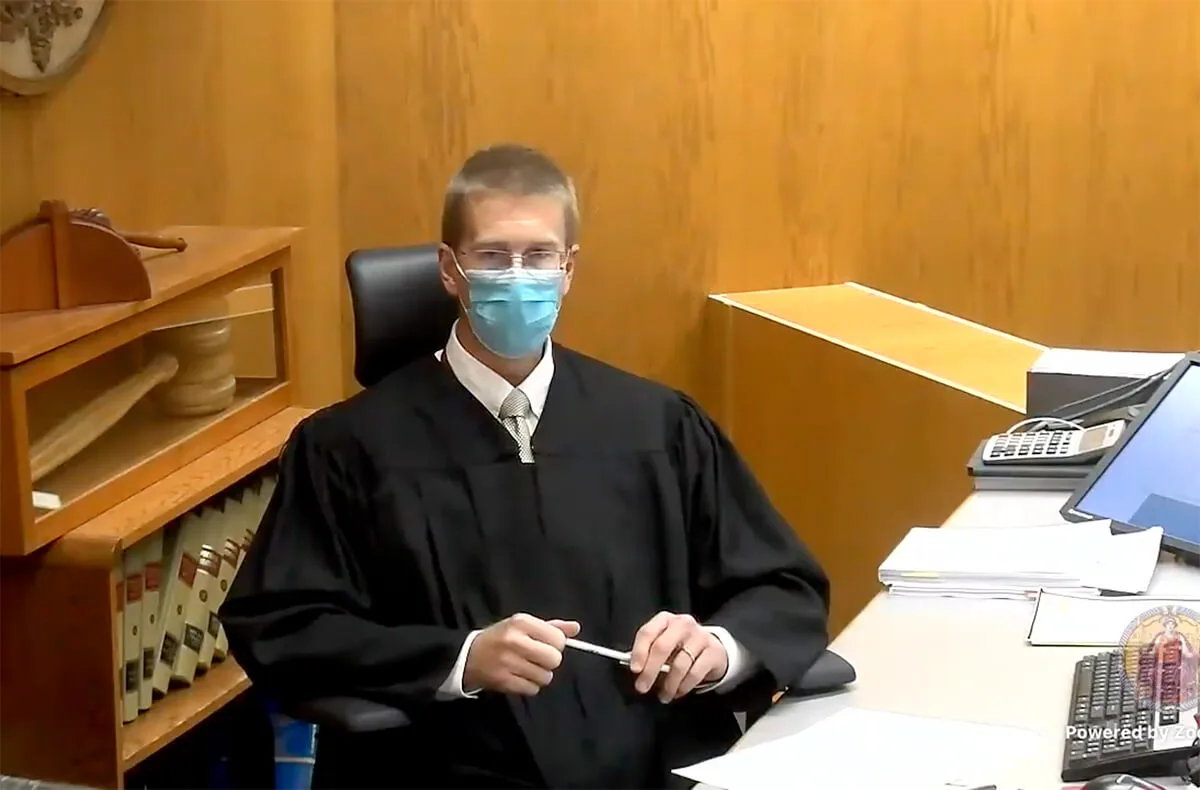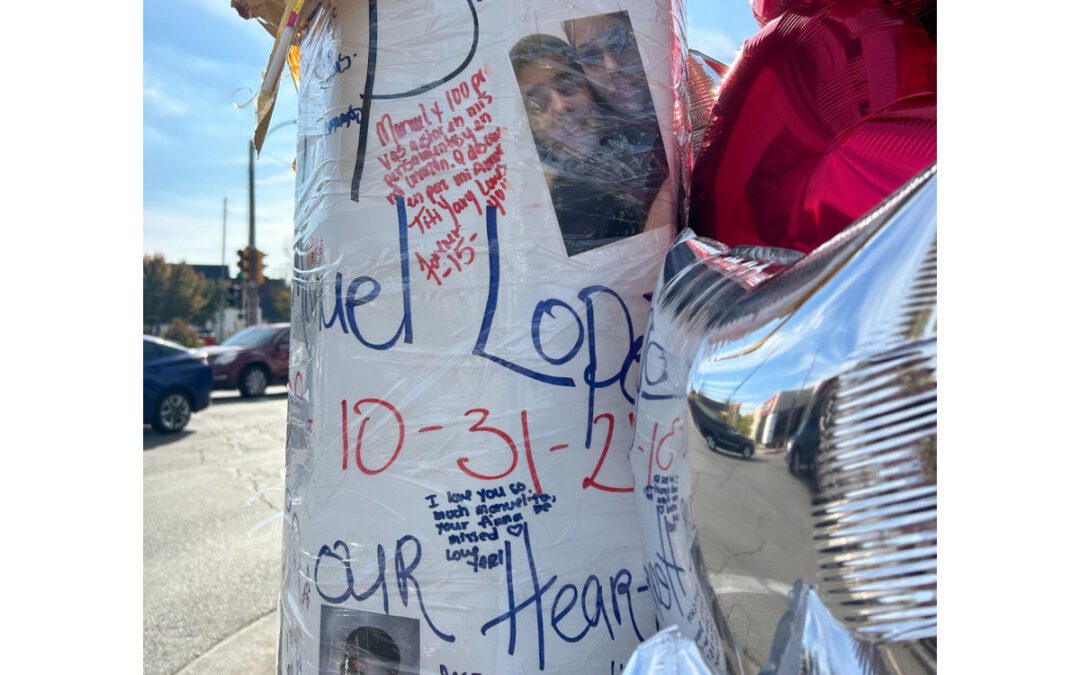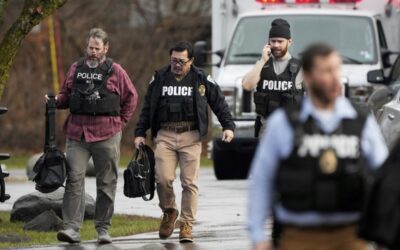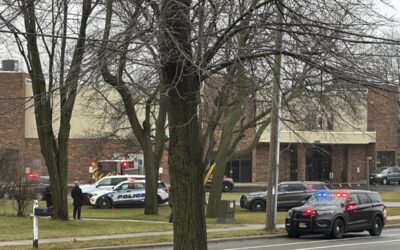
#image_title
Coronavirus safeguards issued by local and state governments have been targeted by conservatives since the early weeks of the pandemic.
One of the few constants in 2020 has been the coronavirus pandemic. Another constant here in Wisconsin has been the ongoing string ofthe lawsuits fighting efforts to slow the spread of the virus that has killed more than 3,300 in the state.
As Wisconsin’s total coronavirus case count races to 400,000 and as the state enters the post-Thanksgiving period during which new coronavirus case numbers are expected to explode, there are no fewer than five pending cases at the Wisconsin Supreme Court aimed at striking down either local or state COVID-19 restrictions.
State Powers Debated
One lawsuit centers on Gov. Tony Evers’ use of emergency declarations to issue and extend the statewide mask mandate. Specifically, this once-in-a-lifetime crisis has sparked a legal debate on whether a pandemic is a single emergency or an ongoing condition that can cause multiple emergencies.
Waukesha-based attorney Matthew Fernholz, president of the Milwaukee chapter of the conservative Federalist Society, argued in the lawsuit filed on behalf of Waukesha County resident Jeré Fabick that Evers had no authority to issue the first mask requirement or either of the two orders extending the requirement. The mandate, first issued in July, now lasts through mid-January.
State law gives governors the ability to declare a state of emergency for 60 days. The lawsuit argues that Evers overstepped his legal authority because the law does not explicitly say governors can declare successive emergencies for the same overarching crisis—in this case, the coronavirus pandemic. Evers first declared a state of emergency in March when he issued the Safer at Home order. He cited massive COVID-19 spikes when he issued the mask orders.
However, the groups suing Evers have been reminded multiple times that Evers’ powers are not unilateral, and relief does exist outside of court. Emergency declarations can either be ended early or extended by the Legislature at any time, but Assembly Speaker Robin Vos (R-Rochester) and Senate Majority Leader Scott Fitzgerald (R-Juneau) have not convened their chambers to take a vote since mid-April.
A nearly identical lawsuit—one filed by the conservative Wisconsin Institute for Law and Liberty (WILL), and supported by the state’s top Republicans—already played out in Polk County Circuit Court.
The judge in that case, Michael Waterman, sided with Evers because the Legislature has authority to end the mask order at any time. “The legislature’s inaction is relevant and it weighs against judicial intervention,” Waterman wrote.
The state Supreme Court in late October declined to take up the Polk County case, but the court allowed WILL to join the Fabick case as justices heard arguments two weeks ago.
It appeared as though the conservative majority was ready to strike down the order, but the Legislature also received rare admonition for its inaction from conservative Justice Rebecca Bradley, who suggested lawmakers “abdicated [their] responsibility to the people of Wisconsin” by not convening. The court has not released a ruling on the Fabick case yet.
Along with mask requirements, conservative groups have targeted business capacity limits. A lawsuit at the state Supreme Court, filed by the Tavern League of Wisconsin, centers on a public health order issued Oct. 7 by Department of Health Services Secretary-designee Andrea Palm that restricted capacities in restaurants and other establishments to 25% of their occupancy limit.
The order worked its way through Barron County Circuit Court, where a judge upheld the order.
The Mix Up, a bar in Amery, and Pro-Life Wisconsin, an anti-abortion group, appealed the decision and argued the capacity limit negatively affected them. The bar claimed the order hurt business—even though it admitted it was not following the order, nor was the local health department enforcing it—and Pro-Life Wisconsin argued the order limited its ability to fundraise.
An appeals court panel killed the order on Nov. 6, the day it expired. But the Supreme Court decided on Nov. 18 it would revive the case; whatever ruling it issues will set a legal precedent, even though the original order is expired. Oral arguments are scheduled for the morning of Dec. 14.
Local Control Targeted
Three other cases, all involving WILL, challenge local health officials’ authority to take action they deem necessary to protect communities during the pandemic.
One is a consolidation of three different cases filed at the end of August by two statewide private school groups, a few individual private schools, and parents. They all oppose a Dane County health order that forced schools to begin the year with virtual instruction for grades 3-12 rather than in-person classes.
After the consolidation, attorneys involved in the case include WILL; Misha Tseytlin, a former state solicitor general under Attorney General Brad Schimel; and the conservative Chicago-based Liberty Justice Center.
Evers, Attorney General Josh Kaul, the City of Milwaukee, the League of Wisconsin Municipalities, the Madison Metropolitan School District and Monona Grove School District, and the Madison teachers’ union are among other interested parties.
The state Supreme Court granted an injunction in August, putting the school closure order on hold while the case is heard. Oral arguments are scheduled for 9:45 a.m. Dec. 8.
The City of Racine faces a nearly identical lawsuit filed last week. Dottie-Kay Bowersox, head of the Racine Public Health Department, last month ordered all school buildings within her jurisdiction to close Nov. 27 through Jan. 15.
School Choice Wisconsin, the Wisconsin Council of Religious and Independent Schools, and some private schools within Racine and the small suburbs of Wind Point and Elmwood Park—which Racine’s health department holds jurisdiction over—sued on Nov. 19 to overturn the order. The group is represented by WILL.
The Supreme Court granted a temporary injunction against Bowersox’s health order on Nov. 25, pending arguments and a decision on the Dane County schools case.
Two days before the Supreme Court paused the order, the City of Racine updated its local stay-home ordinance to include tighter restrictions, including ordering all schools within the city—but not the suburbs over which the Health Department holds jurisdiction—to close. The Health Department recorded a 90% increase in confirmed COVID-19 cases since Oct. 20.
WILL is now asking that the Supreme Court hold Bowersox in contempt of court. However, the new restrictions are part of an ordinance—not the public health order that is being challenged—and the update was issued before the injunction, so it does not appear likely the court will penalize Bowersox.
In both cases regarding school closures, WILL argues that school closures are not included in local health officials’ broad powers granted by state law to take actions necessary to control health emergencies. One section of state law references local health officers’ authority to close school buildings, but WILL’s argument centers on a different section that only explicitly allows the state Department of Health Services to close schools.
Dane County’s health officer, Janel Heinrich, faces a second lawsuit against its local health orders. Like Racine, Dane County tightened its COVID-19 restrictions just before Thanksgiving due to uncontrolled virus spread. On Nov. 23, Gymfinity, a gymnastics center in Fitchburg, sued to block the order. Once again, WILL is behind the filing.
Heinrich’s order—issued after average new daily coronavirus cases doubled month-over-month—banned indoor gatherings, athletic events, exercise classings, meetings, movies at theaters, and other events where people gather inside. Gymfinity claims it will lose as much as $40,000 under the order, which lasts until Dec. 16.
Despite 27,000 COVID-19 infections and 81 deaths in Dane County, WILL argues the order was not “reasonable and necessary” as defined by state statutes and that it further violates state law by allowing the health department to issue a fine for violating the order without getting approval from elected officials.

New study ties weak state gun laws to child deaths in Wisconsin
States with weak gun laws, including Wisconsin, experience more firearm deaths among children ages 0 to 17, according to a study published in the...

11 biggest true crime cases in Wisconsin history
From bank robberies to infamous serial killers, Wisconsin is home to some horrific and unforgettable true crime cases. With its beautiful state...

Radon is High in Wisconsin: How to Protect Your Family
Radon is a naturally occurring, radioactive gas. It can get into your house through cracks in the foundation, walls, and openings around pipes and...

Is that a drone or a plane? Experts help explain the differences
By JOHN SEEWER and MARK SCOLFORO Associated Press Up in the sky, is that a drone, a plane or a helicopter? Experts who study unmanned aircraft...




